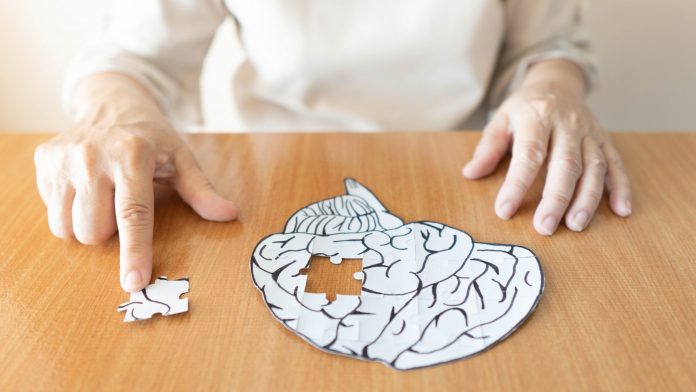As seen in the December issue of Retail Pharmacy magazine.
Nearly half a million people in Australia are living with dementia1, which is the second leading cause of death among Australians after coronary heart disease.2
The term dementia is used to describe the symptoms of a large group of illnesses that cause a progressive decline in a person’s functioning: a loss of memory, intellect, rationality, social skills and physical functioning.
Dementia can affect anyone, but it’s more common after the age of 65.
While we cannot change many of the key risk factors associated with dementia – such as getting older, genetics or family history – new research suggests there may be some benefits to a simple intervention: taking a daily multivitamin.
Protecting against decline
According to new research from Wake Forest University School of Medicine in North Carolina, US, conducted in collaboration with Brigham and Women’s Hospital in Boston, taking a daily supplement may improve cognition in older adults.
The findings, recently published in Alzheimer’s & Dementia, the journal of the Alzheimer’s Association3, are based on a trial that investigated whether taking a daily cocoa extract supplement or a daily multivitamin-mineral supplement reduces the risk of developing heart disease, stroke, cancer and other health outcomes.
More than 2200 participants aged 65 and older enrolled and were followed for three years. They completed tests over the telephone at baseline and annually to evaluate memory and other cognitive abilities.
The study showed that although cocoa extract did not affect cognition, daily multivitamin-mineral supplementation resulted in statistically significant improvement.
Dr Laura Baker and Dr Mark Espeland, both Professors of Gerontology and Geriatric Medicine at Wake Forest University School of Medicine, were the co-principal investigators of the trial.
“This is the first evidence of cognitive benefit in a large, longer-term study of multivitamin supplementation in older adults,” Dr Baker said.
The researchers estimated that three years of multivitamin supplementation roughly translated to a 60 per cent slowing of cognitive decline (about 1.8 years).
The benefits were relatively more pronounced in participants with significant cardiovascular disease, which is important because these individuals are already at increased risk for cognitive impairment and decline.
“There’s an urgent need for safe and affordable interventions to protect cognition against decline in older adults,” Dr Baker said, adding that while the preliminary results are promising, it’s too early to recommend daily multivitamin supplementation to prevent cognitive decline.
“Additional research is needed in a larger and more diverse group of people,” she continued. “Also, we still have work to do to better understand why the multivitamin might benefit cognition in older adults.”
Monitoring change in cognition
Dementia Australia recently released a free mobile app to help people to privately monitor and better understand suspected changes in their cognition over time
The free app, BrainTrack4, helps individuals explore common cognitive concerns and provides brain health information through what are described as fun, travel-themed games that have been adapted from validated cognitive testing.
While not intended to replace a formal cognitive assessment, the app supports the early identification of cognitive changes over time that may warrant further testing with a GP.
The right support at the right time can enable people with dementia to maintain their independence and functional capacity for as long as possible, says Dementia Australia Honorary Medical Adviser Associate Professor Michael Woodward, Director and Clinical Head of Aged Care Research, and Director, Memory Clinic for Austin Health.
“Health and allied health professionals play an important role in helping people living with dementia to live well for longer,” he said.
“By assessing physical and cognitive issues, they can provide interventions to support the maintenance of current strengths and capacities, improve skill acquisition and promote recovery, enablement and rehabilitation.
“The more GPs and healthcare professionals know and understand about dementia and how Dementia Australia’s support and programs, including post-diagnostic services, can wrap around their patient, the better the system and healthcare experience will be for all.”
References
- Dementia Australia. 2018. ‘Dementia Prevalence Data 2018-2058’. Commissioned research undertaken by NATSEM, University of Canberra.
- Australian Bureau of Statistics. 2020. ‘Causes of Death, Australia, 2019’.
- alz-journals.onlinelibrary.wiley.com/doi/full/10.1002/alz.12767
- dementia.org.au/braintrack-app
This feature was originally published in the December issue of Retail Pharmacy magazine.








